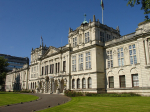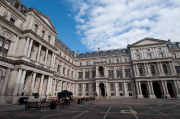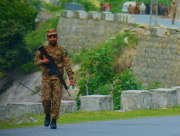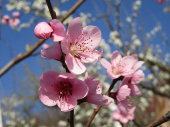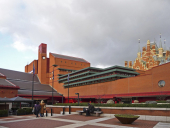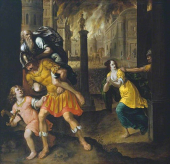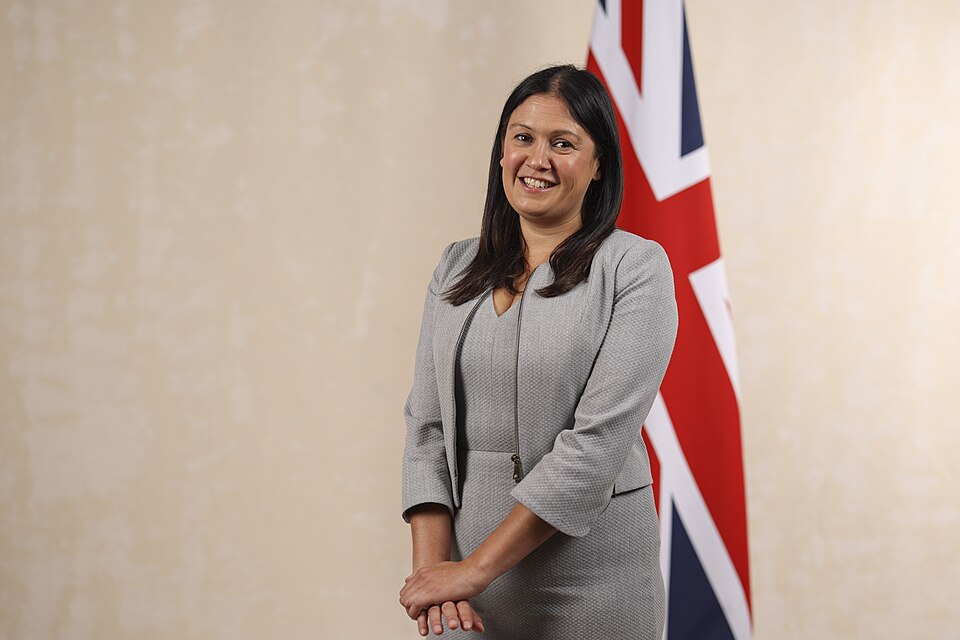
Excellencies, distinguished delegates, ladies and gentlemen, on behalf of the UK Government, I would like to extend our deepest condolences to the families who lost loved ones in the
appalling attacks last week. Our Prime Minister, Sir Keir Starmer, has personally shared his sorrow with Prime Minister Modi. On behalf of the British people, the UK condemns all forms of terrorism and the extremism that sustains it, always.
The relationship between India and the UK is strong and deep, and it is personal for me. My father grew up in Kolkata, where my Indian family still live, and I’m deeply proud to be the first ever Labour cabinet minister of Indian heritage in the United Kingdom.
Our shared history is woven into the fabric of both our nations. The UK is an island that has been shaped by waves of immigration. They include the many children of Empire, like my father, who came to England in the 1950s to study and later lecture in English literature. It was a journey that would lead him to go on to profoundly change and shape modern Britain through the struggle for race relations and the creation of the landmark Race Relations Act.
And like so many Indians before him, Sophia Duleep Singh, who simultaneously fought for and advanced women’s rights in the UK and independence in India. And Jayaben Desai, a five foot tall Gujarati woman who led thousands of workers out on strike in London’s East End, uniting the Labour movement in a battle that would improve the status, pay and conditions of a generation of labourers. These are the men and women who have helped to shape our national story in the United Kingdom and to forge modern Britain, and they, in turn, paved the way and inspired others, in particular, a man who made history just a few short years ago when he became the first person of Indian heritage to serve as Prime Minister of the United Kingdom, Rishi Sunak.
It is this long and shared history, in all its light and dark and the deep rooted personal ties that sustain it, that gives me an unshakable belief in the power of what we two nations can achieve together. And stretching before us is both an historic opportunity and a challenge that our generation must rise to, to forge a future that is grounded in mutual respect, shared prosperity and a renewed commitment to one another. Together, we can be exemplars of how we transcend national borders and work together in our mutual interest. That is why I’m so delighted to be here with you today. And it is fitting that it is here in this great city, the home of storytelling, that we will write the next chapter of our shared story together.
Many of you here will know that there are nearly two million people of Indian descent living in the United Kingdom, and they are the living, breathing bridge between our two nations. And while Britain undoubtedly has shaped India, it is equally true that India has profoundly shaped Britain, bringing an energy, a resilience and a richness that has had an immeasurable impact on British society, culture and identity. From the biggest British band in history, the Beatles, to Great British films like ‘Bend It Like Beckham’, India has helped to define what it means to be British. We deeply value this rich contribution to our national life and to our culture.
From Charli XCX to Nikita Chauhan and Daytimers, the next generation is already powering ahead, creating a vibrant tapestry of diversity and collaboration. But it is our firm belief that we can do more. Our Labour government, led by the Prime Minister Sir Keir Starmer, is determined to strengthen our relationship with India across all sectors of our economy, and we were delighted that our Chancellor Rachel Reeves was able to recently announce over £400 million worth of new trade and investment partnerships with India. Our regional mayors like Tracy Brabin, the Mayor of West Yorkshire, prized the relationship with Indian business for the jobs and investment they bring to parts of the UK, like Bradford, home to a rich, vibrant diaspora community.
We are in the UK a self confident, outward looking country at the start of a decade of national renewal, and whether it’s literature, film, fashion or music, Britain, like India, excels. It’s our firm conviction that by deepening our cultural ties, we can grow together, prosper together, and light up the world. As we do already in sports, and we are so looking forward to strengthening the sporting ties between our nations in the coming years to promote great sporting events that are streamed all over the world. I’ve been pleased to see the cricketing bonds extended beyond the field with the recent Indian investment in the majority of teams in the UK’s Hundred competition. And I look forward to welcoming both India’s women’s, men’s and mixed disability teams to England this summer.
We look back fondly as a country to the moment when we hosted London 2012. It was an incredible showcase for the UK’s talent, and we share your excitement about India’s potential bid for the 2036 Olympics and Paralympic Games. So as we move ahead, let our story be like Jab We Met - built on connection, trust and the courage to walk together. And not like Lagaan, although we have many dramatic cricket matches still ahead of us.
The creative industries, film, gaming, fashion, literature, music, are booming in both of our countries. We have named the UK creative industries as one of the eight powerhouses that will drive Britain’s growth and prosperity. I was delighted to appoint Baroness Shriti Vadera, Chair of Prudential PLC and the Royal Shakespeare Company, to lead the development of the government’s creative industries growth strategy.
I’m committed to ensuring that the UK remains one of the world’s most open and supportive places for filmmakers and creatives. Our government is investing in skills, in film studios, in tax incentives, and as you can see from my presence here today, and that of the British Film Institute, in our international relationships, which we prize. We’re backing the creative industries right across the United Kingdom, just as here in India your government is backing your creative industries to the hilt.
Nobody could have listened to that opening speech from the Prime Minister and not understand that this is anything less than a personal signal of intent that he will leave no stone unturned in his mission to power up the untapped potential that exists in the already global success story of Indian film, literature and fashion, and we share that ambition, for you and for us. Now is the time to work together to put rocket boosters under our creative and cultural industries for growth, prosperity and power.
And whether it’s music, theatre, arts, culture, gaming or fashion, look what our partnerships can achieve. In fashion, the British Indian designer Harri is making waves in every corner of the globe thanks to his creativity and our backing. Our government proudly supports new talent through the new gen program led by the British Fashion Council. And in gaming, we have companies like Tara Gaming Limited creating impactful cultural digital partnerships from the UK to India. In the arts, Chila Burman is quite literally lighting up the world with her artwork, backed by the British Arts Council and great British institutions like the Tate, at whose Liverpool gallery she will shortly exhibit. The National Theatre, one of the UK’s greatest cultural institutions, now with artistic director Indhu Rubasingham, has launched a new programme, which includes a new adaptation of The Jungle Book with Anupama Chandrasekhar, and a retelling of Hamlet starring Hiran Abeysekera. And as only one of three countries in the world that is a net exporter of music, we are delighted that the vibrancy of the British music scene is being powered by artists like Ed Sheeran, A. R. Rahman and Diljit Dosanjh, whose collaborations have brought fans flocking to stadiums from Manchester to Mumbai.
Britain is also home, as you know, to unique British public service broadcasters like the BBC, who are a vital part of the UK’s creative economy, and they ensure that we have the skilled workforce, the facilities, the expertise, that every investor benefits from.
We’re one of the most attractive places to invest in and collaborate, not least because of our competitive tax reliefs, including a new credit we launched for independent film and visual effects, as well as the high quality studios and our skilled workforce across the whole of the UK, not just London. Last year, production spend in the UK increased by 31%, testament to our global reputation as a world leading centre for international film and TV production. But we also benefit from India’s media and entertainment sector, one of the largest and most dynamic in the entire world, whose scale, reach and creative energy are nothing short of phenomenal.
My ambition is for our cooperation to lead a cinematic revolution that has impacts far beyond the screen. Both the UK and India boast rich cinematic traditions and share a deep mutual interest in each other’s storytelling cultures. Like ‘Lioness’ created by Kajri Babbar, who was herself inspired by our very own Gurinder Chadha.
Films from India regularly account for around 30% of non-English language releases in the United Kingdom, and there is a new wave of Indian independent cinema telling fresh stories to the world, but made with the United Kingdom. Like ‘Defenders of Planet Earth’, a shining example of cross cultural partnership tackling the most important of shared challenges - the climate crisis - by UK-based Fingerprint Content and the India Cine Hub. I see enormous potential for greater collaboration between our two countries. While our successes in these sectors are driving growth in our economies, providing good quality jobs across every part of our countries, collaboration can take this to a whole new level.
Already we’re seeing success. British crews working on Indian sets, Indian directors bringing their vision to British audiences and streaming services that offer a bridge between our two cultures, across the creative industries in goods services and especially audio-visual services, India is one of our most important partners. Given the size of our markets and the scale and quality of our TV and film sectors, I know we can be more ambitious.
Twenty years ago, we signed the UK-India Film Co-Production Treaty to act as a foundation for partnership in the audio visual sectors. And I am delighted that later this week, my fellow minister for culture, Shri Gajendra Singh Shekhawat and I will agree and sign a bilateral Cultural Cooperation Agreement on behalf of our two great nations.
This agreement will bring together flagship UK and Indian cultural institutions, including the British Library, the Science Museum and the Victoria and Albert Museum, many of whom are with us here at WAVES this week. But we also have over 1,700 accredited museums across the UK, in places like Birmingham, Manchester and Leeds, with expertise in every subject you can name, with many potential partnerships available to our Indian counterparts.
Behind this treaty - what breathes life into this treaty - is the passion, the creativity and the human connections across our thriving creative industries and the power of friendship and collaboration between our nations. In this new era where at times, it feels we’ve lost the ability to understand one another across the world, let us use our strengths as the greatest storytellers in the world to bring nations together. Let’s empower the next generation of storytellers from Mumbai to Manchester, Kolkata to Cardiff, Bangalore to Belfast, Lucknow to Leicester and Delhi to Dundee, because in film, fashion, music and arts Britain and India lead the world and we can rise to this moment of a divided world together.
Together, we will light up the world. Our relationship evolves, but it will always endure. One of Britain’s most famous poets, William Wordsworth, once wrote: “So backwards, as I cast my eyes, I see what was, and is and will abide; Still glides the stream, and will forever glide; The Form remains, The Function never dies.”
I look to a future where the UK and India, two great creative nations, continue to dream, to collaborate and to inspire the world together, as one of my favorite poets, the great Rabindranath Tagore, says: “We will shoot joy through the dust of the earth old love, but in shapes That renew and renew forever.” Thank you very much. Photo by Lauren Hurley / No 10 Downing Street, Wikimedia commons.











